Substance use can have very real and adverse effects on families and relationships. Those affected by a loved one with substance use disorders often carry an emotional burden and have feelings of anger, anxiety, guilt, and shame. They may experience economic stress due to job loss or money spent on substances. All of this can lead to relationship conflict and family instability.
At the same time, family members and partners can positively impact a loved one in recovery. First, they can influence a loved one to go to treatment. Programs such as Community Reinforcement and Family Training (CRAFT) are offered in some states to help family members learn strategies to have more positive interactions with someone who is experiencing a substance use disorder. Research has shown that 7 out of 10 participants are successful in getting their loved one to go to treatment.
Second, during recovery, partners also play an essential role. Research shows many positives when a partner is involved in recovery, including a 6% reduction in substance use frequency, which translates to approximately two fewer days a month and three fewer weeks per year of drinking or drug use.
If you have been helping your partner in recovery but are looking for a few more practical tips and strategies, this article is for you.

Six Tips for Helping Your Partner in Recovery
Here are six ways you can help your partner in recovery:
- Educate yourself. The better you understand your partner’s addiction and the recovery process, the easier it will be to provide helpful support. Some ways to do this include researching online, talking with people in your network who may be familiar with addiction, or attending a support meeting (many recovery centers offer these to family members or can connect you to some).
- Set healthy boundaries. Self-care and boundary setting can be vital to helping your partner in recovery, so spend some time learning how you can best support your partner without sacrificing your well-being. Setting boundaries is not always easy with a loved one, so try to first articulate what yours are, then communicate them calmly and stick to them.
- Participate in support programs. Several free support programs are available to family members of those in recovery, and they can be both educational and emotionally supportive. Learning from people who may have had similar experiences helping a partner in recovery can be very valuable. Consider joining one through SMART Recovery Family & Friends, Al-Anon, or Nar-Anon.
- Practice open communication. Active listening and “I” statements are two approaches that can help. Active listening involves focusing on your partner with your full attention, asking follow-up questions, repeating back what you’ve heard, and demonstrating empathy. “I” statements are helpful because they shift the focus and potential blame away from your partner. Instead of saying “You always…” try an “I” statement such as “I feel sad when…”
- Encourage treatment. Therapy and professional help can have a very positive impact during recovery. Encouraging your partner to attend and helping to remove potential barriers when possible will give them a better chance for success.
- Consider Behavioral Couples Therapy (BCT). BCT is a “treatment approach for married or cohabiting drug abusers and their partners that attempts to reduce substance abuse directly and through restructuring the dysfunctional couple interactions that frequently help sustain it.” It helps partners deconstruct negative patterns and has been shown to increase recovery rates.
Southern Sky Recovery Supports Families and Loved Ones
Helping your partner in recovery can be challenging, but you don’t have to do it alone. We provide several therapy programs because we believe the right approach is critical to success in recovery. We also know that every individual, couple, and family will walk their unique journey in recovery, and treatment needs to be tailored accordingly. From outpatient detox to partial hospitalization (PHP), intensive outpatient (IOP), and outpatient rehab (OP), we can help you and your partner work towards a life of trust and resilience. We hope you’ll contact us today if you’ve been considering treatment options.
FAQs on Helping Your Partner in Recovery
What are some boundaries I should set with my partner?
Setting boundaries is a way to create expectations for both you and your partner. Some couples set them around honesty, communication, and attendance at support meetings. You could discuss a plan for what to do in the event of relapse. This is best done outside of the moment when you are both calm and able to express your preferences and boundaries. Boundary setting is an important way to protect your own mental and emotional well-being while also helping your partner in recovery.
Friends and family have warned me about enabling my partner. How can I help without enabling them?
Start with what enabling is–covering or making excuses for your partner so they don’t experience the natural consequences of their actions. While this often comes from a place of love or fear, enabling prevents growth and accountability. Sometimes, it can be hard to see the difference between enabling and healthy support, but supporting typically means encouraging independence and healthy choices. If your partner asks you to do something that puts you at risk or that you don’t think is good for your well-being, it is okay to say no and set a boundary.
What if my partner relapses?
For many people, relapse is a common part of their recovery journey. If your partner relapses, try to remain calm. They are likely scared and embarrassed to tell you about their relapse. If possible, approach the situation empathetically and encourage your partner to seek help. That could mean re-engaging with their treatment plan, attending support meetings, or attending therapy. If relapse does happen, draw on your support network, whether that is a friend, a group support meeting, or focusing on your self-care in the way that feels the best to you at the moment. Remember that relapse is not necessarily a sign that your partner’s recovery plan has failed, it may just need an adjustment.
How can I rebuild trust after addiction has strained our relationship?
Trust takes time to build and rebuild, and it takes effort and commitment from both partners. In addition to setting boundaries, many couples will set goals that focus on recovery and their relationship. Following through on the commitments you have made to each other, even if difficult, will build trust over time. Couples therapy can be a safe place to work through the past or talk about upcoming challenges; doing it together can be a uniting effort. Try to celebrate milestones, no matter how small, in ways that are meaningful to you.



